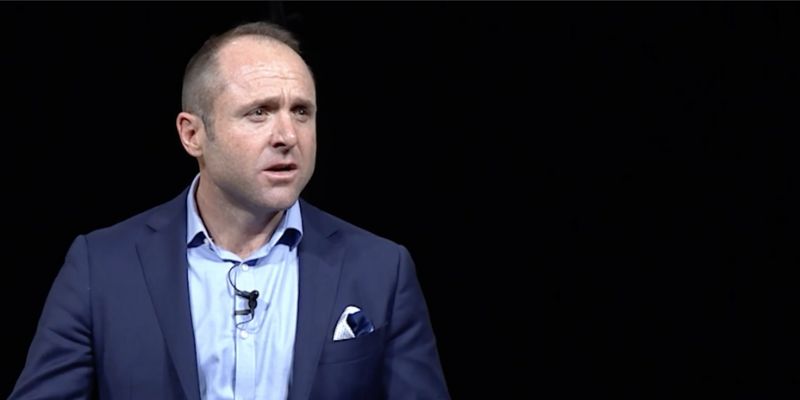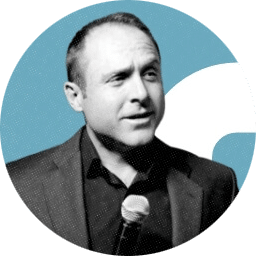Introducing the power of lists: Dive into Jonathan Doyle’s insightful episode on leveraging the incredible effectiveness of to-do lists and daily planning. Discover how these simple tools can reduce stress, enhance productivity, and provide a sense of control over your life’s projects. Join Jonathan as he shares his personal experimentation and profound insights into human psychology, offering practical strategies to organize your day and achieve greater peace and effectiveness. Tune in to unlock the potential of lists and take charge of your journey towards growth and success.
Welcome Aboard
Hey there, my friend, Jonathan Doyle with you. Welcome to the Daily Podcast. I do hope you got to listen to the last three days of episodes because we just did a great three-day series on self-leadership, character, influence and the power of choices. It is a really good three-day series. So if you missed any of that, please jump back a few days and check that sequence out, because I was really pleased with it.
Coping with Increased Complexity in Life

We have something to share, and I hope it’s a blessing to you today. We’re going to talk about the incredible power of lists. I am a human laboratory, I am experimenting with myself all the time. And recently the level of complexity in my life went up a few notches. We’ve put on a whole bunch more staff around the world, and we still have three teenagers, and it’s just. Wow. What a season!
I used to joke for many years, I say I would never retire and I never understood why anybody would want to retire. Now I don’t ever plan to retire. I’m still holding on to that. I actually still want to be in the game. For the rest of my life. I never want to just go and be done. No judgment on anybody. I’m just speaking for myself, but I can definitely tell you at this stage I do understand why people do want to retire. Very busy, very complex.
The Power of Lists Unveiled

What I want to share with you today is that I just sharpened up a tool that I’ve been using for a lot of my life, but I sharpened that up last week and got great results from it. It’s simply the power of lists.
There’s a lot of software out there for goal management, task management, and project management, and look, I’m sure it’s all great. There’s a favorite quote I have from St. Thomas Aquinas that was running in the 13th century, as Aquinas famously said. The hand is the conjoined instrument of the mind. There just seems to be something special about writing. As much as the world wants to go digital, I still write a lot.
So what I did last week was that I began to really use my daily diary and planner a lot more. And I just put in to-do lists. If you’re listening to this thinking, is this your revolutionary idea, Jonathan? You’re telling us to use to-do lists? Already do that. No. What I’m telling you is what happened as I began to write down all the projects that I’m involved with and the daily to-do lists.
Understanding Stress and Resource Management

Two things happened, one is that my stress levels declined. A lot of the time, our stress levels are simply due to what I mean. I’ve done so many podcasts on stress, but the basic nature of stress, it’s core essence, is our perceived threat with the sense that we don’t have the resources to adequately meet it. That’s the nature of stress as it ramps up. As some kind of perceived threat, and that can just be too many things you have to do. Now that you’ve got 150 points to do, and you’ve got 100 points of energy. You basically get stressed in proportion to your sense of your own resources. And the scale and size of the things you have to deal with.
So when you’re using lists, what it allowed me to do was consistently keep things organized. So I knew I wasn’t losing anything. I had a sense of peace because I went, yep, these are the projects that are over here. I know where they are. They’re not going to disappear. I can check on them regularly just by visiting them each day through this process. So you get less stressed from using lists.
Harnessing Human Psychology for Effectiveness

The second thing is: effectiveness. Last Friday, I wrote two Fridays ago. I had this list of things. What I discovered was that there’s something about us as humans. I’m pretty sure that psychologically, we are hardwired for completion. There’s something about our cognitive structure that says we really don’t like incomplete things; we like closed loops.
It would make a lot of sense in terms of evolutionary psychology that we don’t like too many things swinging in the breeze. You’re like, if you’re working on a building project, it’s frustrating if you do three-quarters of it and then stop. We would get a sense of peace when things were finished.
"Writing down each day what really matters for you and what needs to be done will reduce your stress and maximize your effectiveness."
Jonathan Doyle Tweet
Achieving Completion and Productivity

So one of the things about like a kind of really consistent list process, it makes you go. What needs to happen, and it pushes you to get it done. There’s something in our brains that doesn’t like the list to just be open indefinitely. I don’t know what, it’s got to be the “completion” piece. But the piece you get from putting a line through something. I don’t know. It’s wow.
On my list the other day; I crossed it off 1, 2, 3, 4, and productivity. So the way I do it is that I’m up as you guys know, I’m up super early in the mornings. I have some time for prayer, and then I have another coffee, and then I’ve got this great downstairs desk, and I just make a list of the things that I have to set up for the day. It’s why I want to do this. I want to do this, and we’ll do this.
Today’s list, I’ve got to get through a hundred pages of the biography I’m reading about Ulysses Grant. I want to get through one full chapter of a book I’m reading about ketogenic exercise. I’m reading a really deep book by N. T. Wright on St. Paul’s letters to the Romans. I want to get through all that reading. I’m recording, batch recording content today, this content, and there’s a half-dozen other things on that list. Once they’re on that list, I’m like, I got to get them done.
It doesn’t stress me out. It’s just okay. And you get really good at calibrating what you can reasonably do. If you put too much on there, you’re going to know the next day, and you’ll get good at calibrating your own capacity.
Embracing Practicality for Growth

So my friends, today’s message is not earth-shattering. It’s not like you’re going to lie in bed tonight. Wow. That is basically the Gettysburg Address. That is it. That’s Martin Luther King‘s Washington Memorial speech, I have a dream. It’s not that I’m just giving you something practical and useful that does work. That gives you a sense of organization and control over your day.
Lists, to-do lists, and daily planning is going to give you a sense of peace on the project and on the top few projects that you’re working on in your life. It’s going to give you more effectiveness in the day because you’re going to have a clear sense of what you need to accomplish on any given day. Otherwise, we drift; that’s just the nature of reality, we drift. I don’t want you to drift, I want you to grow.
Conclusion and Call to Action

So God bless you. My friend, I hope that’s useful. If you’d like me to come and speak at your conference, work with your business teams, any particular area, go check out the website. jonathandoyle.co. And on Instagram: @jdoylespeaks, and on YouTube.
God bless you. My friend, this has been the Daily Podcast. My name’s Jonathan Doyle. You and I are going to talk again tomorrow.








